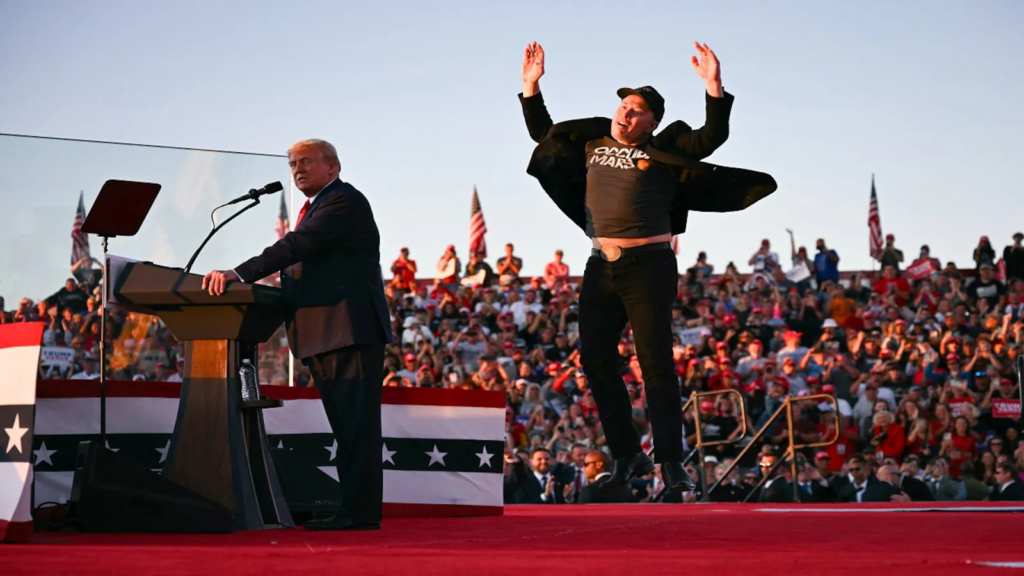Elon Musk, a towering figure in technology and business, is no stranger to headlines. Known for his disruptive innovations, from space travel to electric cars, Musk’s journey has been a testament to ambitious entrepreneurship. However, recent reports by The Washington Post reveal a less-discussed chapter in Musk’s early life in America.
According to the outlet, Elon Musk arrived in California in the mid-1990s to attend Stanford University but soon dropped out to pursue entrepreneurial ventures, including founding his first major company, Zip2. During this time, Musk’s immigration status became a legal gray area, as he worked without valid authorization.
This revelation sheds light on the entrepreneurial sacrifices he made and the challenges he navigated in his path to becoming the world’s richest man.
Musk’s Early Days in America: Building Zip2
When Musk arrived in Palo Alto in 1995, he had aspirations of joining Stanford University for a Ph.D. in applied physics and materials science. However, inspired by the budding tech industry and the opportunities in Silicon Valley, Elon Musk dropped out after just two days. He joined forces with his brother, Kimbal Musk, to launch Zip2, a software company focused on online business directories and maps.
Read : Elon Musk has been in Secret Contact with Putin Since 2022
While Zip2 proved successful, selling for around $300 million in 1999, the legality of Musk’s work authorization during this period is now under scrutiny. The Washington Post revealed that immigration law experts believe Musk’s status may not have met the legal requirements to work in the United States. Read : Watch: A Video of Richest Person on Earth Elon Musk Dancing After Tesla Approves $56 Billion Pay Package
Musk would have required a student visa to be authorized to work, and that visa status mandates enrollment in a full-time program, which he wasn’t part of since he dropped out. Though brief, this period of unauthorized work emphasizes the lengths Elon Musk went to pursue his American Dream, even if it meant skirting immigration policies.
Rallying for Trump: Musk’s Political Views and Controversial Comments
As of 2024, Musk’s influence extends beyond business, touching the realms of politics and social influence. Recently, he has openly endorsed former president Donald Trump for the upcoming election, even speaking at a rally in Lancaster, Pennsylvania, to mobilize support for the Republican candidate.
This endorsement, however, comes at odds with Trump’s long-standing stance against illegal immigration and his stringent border policies, which targeted individuals who, like Elon Musk, lacked valid authorization to work in the U.S.
During the rally, Elon Musk addressed a range of topics, including the 2021 attack on the U.S. Capitol, the efficacy of early voting, and the controversies surrounding mail-in ballots.
While acknowledging the significance of January 6, Elon Musk contested characterizations of the incident as an insurrection, arguing that Trump’s critics are the “real enemies of democracy.”
These remarks were met with applause from the crowd, reflecting Musk’s alignment with Trump’s agenda and the polarizing viewpoints surrounding the 2024 election.

Musk’s support for Trump has extended to significant financial contributions through his super PAC, aiming to fortify Trump’s influence in swing states. His backing includes daily giveaways of $1 million checks to supporters of the U.S. Constitution, a move met with both support and scrutiny.
While his actions are seen as incentives for voter mobilization, critics have questioned the legality of such large-scale financial incentives, with the U.S. Justice Department expressing concern about potential violations of federal election laws.
Musk’s Vision Beyond Politics: Technology, Society, and Faith
In addition to his political endorsements, Musk’s town hall in Lancaster delved into various issues, revealing his viewpoints on technology, society, and existential threats.
When asked about the rise of artificial intelligence, Elon Musk advocated for moderate regulation, emphasizing the potential dangers if left unchecked. He critiqued what he termed the “woke religion,” describing it as an “extinctionist ideology” and stressing the importance of upholding traditional values, including increasing birth rates to address population decline.
Musk also spoke about his belief in Jesus as a historical figure, offering a glimpse into his personal beliefs. His advice to young attendees was to “study physics,” reflecting his long-standing enthusiasm for scientific knowledge and innovation.
At one point, Musk even humorously fielded a question about purchasing the Chicago White Sox, showcasing his down-to-earth appeal amid his superstar status.
The town hall allowed Elon Musk to connect with supporters on a personal level, establishing him as a multifaceted public figure who bridges the worlds of technology, politics, and social discourse. His endorsement of Trump, combined with his influential business ventures and distinct societal views, underscores his unique role in shaping America’s future.

